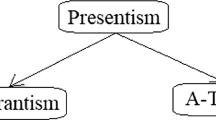Abstract
Philosophers have traditionally held that claims about necessities and possibilities are to be evaluated by consulting our philosophical intuitions; that is, those peculiarly compelling deliverances about possibilities that arise from a serious and reflective attempt to conceive of counterexamples to these claims. But many contemporary philosophers, particularly naturalists, argue that intuitions of this sort are unreliable, citing examples of once-intuitive, but now abandoned, philosophical theses, as well as recent psychological studies that seem to establish the general fallibility of intuition.
In the first two sections of this paper, I evaluate these arguments, and also the counter-arguments of contemporary defenders of tradition. In the next two sections, I sketch an alternative account of the role of philosophical intuitions that incorporates elements of traditionalism and naturalism - and defend it against other such views. In the final section, however, I discuss intuitions about conscious experience, and acknowledge that my view may not extend comfortably to this case. This may seem unfortunate, since so much contemporary discussion of the epistemology of modality seems motivated by worries about the mind-body problem, and informed by the position one wishes to endorse. But, as I argue, if conscious experience is indeed an exception to the view I suggest in this paper, it is an exception that proves - and can illuminate - the rule.
Similar content being viewed by others
References
Bealer, G. (1987): ‘The Philosophical Limits of Scientific Essentialism’, Philosophical Perspectives I.
Bealer, G. (1994): ‘Mental Properties’, Journal of Philosophy XCI(4).
Bealer, G. (1996): ‘A Priori Knowledge and the Scope of Philosophy’, Philosophical Studies 81.
Bealer, G. (1998): ‘The A Priori’, Blackwell Guide to Epistemology, Basil Blackwell.
Bealer, G. (2000): ‘A Theory of the A Priori: Intuition, Evidence, Concept-Possession’, Pacific Philosophical Quarterly 81(1).
Bechtel, R. and McCauley (2000): ‘Heuristic Identity Theory’.
Block, N. and Stalnaker, R. (1999): ‘Conceptual Analysis, Dualism, and the Explanatory Gap’, Philosophical Review 108(1).
Burge, T. (1979): ‘Individualism and the Mental’, Midwest Studies in Philosophy IV.
Chalmers, D. (1999): ‘Materialism and the Metaphysics of Modality’, Philosophy and Phenomenological Research LIX(2).
Chalmers, D. and Jackson, F. (2001): ‘Conceptual Analysis and Reductive Explanation’, Philosophical Review 110(3).
Coleman, W. (1977): Biology in the Nineteenth Century, Cambridge: CUP.
Cummins, R. (1998): ‘Reflections on Reflective Equilibrium’, in M. DePaul and W. Ramsey (eds.), Rethinking Intuition, Lanham, MD: Rowman and Littlefield.
Dawes, R. (1988): Rational Choice in an Uncertain World, San Diego: Harcourt, Brace, Jovanovich.
DePaul, M. and Ramsey, W. (1998): Rethinking Intuition, Lanham, MD: Rowman and Littlefield.
Frankfurt, H. (1969): ‘Alternative Possibilities and Moral Responsibility’, Journal of Philosophy 66.
Frankfurt, H. (1971): ‘Freedom of the Will and the Concept of a Person’, Journal of Philosophy 68.
Graham G. and Horgan, T. (1998): ‘Southern Fundamentalism and the End of Philosophy’, in M. De Paul and W. Ramsey (eds.), Rethinking Intuition, Lanham, MD: Rowman and Littlefield.
Hart, W.D. (1988): The Engines of the Soul, Cambridge: Cambridge University Press.
Hill, C. (1996): ‘Imaginability, Conceivability, Possibility, and the Mind-Body Problem’, Philosophical Studies 87.
Hill, C. and McLaughlin, B. (1999): Philosophy and Phenomenological Research LIX(2).
Horgan, T. and Graham, G. (1991): ‘In Defense of Southern Fundamentalism’, Philosophical Studies 62.
Jackson, F. (1998): From Metaphysics to Ethics. New York: Oxford University Press.
Kahneman, D., Slovic, P. and Tversky, A. (1982): Judgement Under Uncertainty: Heuristics and Biases, Cambridge: Cambridge University Press.
Kripke, S. (1980): Naming and Necessity, Cambridge, MA: Harvard U. Press.
Kornblith, H. (1998): ‘The Role of Intuition in Philosophical Inquiry: An Account with no Unnatural Ingredients’, in M. De Paul and W. Ramsey (eds.), Rethinking Intuition, Lanham, MD: Rowman and Littlefield.
Levin, J. (1985): ‘Functionalism and the Argument from Conceivability’, Canadian Journal of Philosophy, Supplementary Volume 11.
Levin, J. (1991): ‘Analytic Functionalism and the Reduction of Phenomenal States’, Philosophical Studies 61.
Levine, J. (1993): ‘On Leaving Out What It’s Like’, in M. Davies and G. Humphreys (eds.), Consciousness, Oxford: Blackwell Publishers.
Lewis, D. (1983): ‘Scorekeeping in a Language Game’, in D. Lewis (ed.) Philosophical Papers, Vol. I, New York: Oxford.
Loar, B. (1999): ‘David Chalmers’s The Conscious Mind’, Philosophy and Phenomenological Research LIX(2).
Quine, W.V. (1969): ‘Epistemology Naturalized’, in W.V. Quine (ed.), Ontological Relativity and Other Essays, New York: Columbia.
Shafir, E. (1998): ‘Philosophical Intuitions and Cognitive Mechanisms’, in M. De Paul and W. Ramsey (eds.), Rethinking Intuition, Lanham, MD: Rowman and Littlefield.
Sosa, E. (1996): ‘Rational Intuition: Bealer on its Nature and Epistemic Status’, Philosophical Studies 81.
Sosa, E. (1998): ‘Minimal Intuition’, in M. De Paul and W. Ramsey (eds.), Rethinking Intuition, Lanham, MD: Rowman and Littlefield.
Stroud, B. (1984): The Significance of Philosophical Skepticism, New York: Oxford.
Vihvelin, K. (2001): ‘Libertarian Incompatibilism’, Philosophical Perspectives.
Watson, G. (1975): ‘Free Agency’, Journal of Philosophy 72.
Weinberg, J. (1999): ‘A Posteriori Doubts About A Priori Intuitions’, given at APA Central Division Meetings, New Orleans.
Williams, B. (1970): ‘The Self and the Future’, Philosophical Review LXXIX.
Yablo, S. (1993): ‘Is Conceivability a Guide to Possibility?’ Philosophy and Phenomenological Research LIII(1).
Yablo, S. (1999): ‘Concepts and Consciousness’, Philosophy and Phenomenological Research LIX(2).
Yablo, S. (2000): ‘Textbook Kripkeanism and the Open Texture of Concepts’, PPQ 81(1).
Author information
Authors and Affiliations
Rights and permissions
About this article
Cite this article
Levin, J. The evidential status of philosophical intuition. Philos Stud 121, 193–224 (2005). https://doi.org/10.1007/s11098-005-4613-2
Issue Date:
DOI: https://doi.org/10.1007/s11098-005-4613-2



